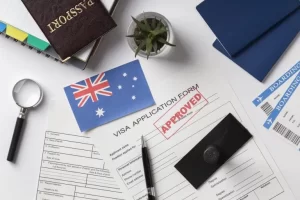Navigating the Complexities of Welder Recruitment: A Guided Tour
Have you ever stared at an almost empty roster, the anxiety creeping up as you wonder how to fill those critical welding positions? If you’re reading this, you probably know the feeling all too well. You’ve tried sourcing locally in Australia, only to find the talent pool frustratingly thin. Now, you’re facing a tough decision: recruit domestically and hope for the best or venture into the international market, with all its complexities and promises.
At this point, you might be overwhelmed, thinking about the costs, the quality of work, and not to mention, the daunting legal labyrinth that comes with international recruitment. “Is this effort worth it?” you might ask yourself, especially when considering the long-term impact on your operations. I’ve been right where you are now, and I’m here to guide you through these choppy waters with insights drawn from years of hands-on experience in both domestic and international recruitment. Together, we’ll explore how each option could play out for your business, not just in immediate costs but also in terms of quality, stability, and long-term growth.
Navigating the Nuances of Effective Welder Recruitment
For industry veterans like you, the intricacies of hiring welders are well-trodden ground. Yet, as the landscape evolves, so too must our strategies for identifying and securing the best talent. It’s not just about filling positions; it’s about understanding the subtle dynamics that influence recruitment success in both local and international contexts.
Understanding Market Trends
The first step is staying abreast of market trends that affect the availability and expectations of welders. This includes technological advancements in welding, shifts in the primary industries that employ welders, and the ebb and flow of project demands that vary by region. An informed recruiter can predict shortages and surpluses in the talent pool, positioning themselves to act when the time is right.
Evaluating Skills and Certifications
Beyond the basic certifications required for welders, an in-depth evaluation of a candidate’s skills can be crucial. This means looking beyond certifications to actual hands-on performance and adaptability in different working environments. For domestic hires, this might involve a detailed assessment during the interview process, whereas for international recruits, you might rely more on documented past projects and references.
Cultural and Organisational Fit
Another layer of complexity is ensuring that candidates align with your company’s culture and values, particularly when recruiting internationally. Understanding the cultural background and work ethics of candidates from different countries can help in predicting how well they will integrate into your teams.
Advanced Recruitment Strategies
Leveraging advanced recruitment strategies such as targeted headhunting, partnering with specialized training institutions for direct recruitment, and using sophisticated HR technologies can drastically improve the quality and speed of your hiring process. These tools are especially useful in narrowing down the best candidates who are not just skilled welders but also good long-term fits for your company.
Costs of Domestic Recruitment
Direct Costs
When hiring welders within Australia, the direct costs are often straightforward but can vary significantly depending on location, experience required, and current market demand. These costs typically include:
Salary and Wages: Given the competitive nature of the field, especially in regions with high demand, salaries can be a major expense. Remember, offering competitive pay is essential to attract the best talent.
Recruitment Fees: Whether you’re using job boards, recruitment agencies, or other platforms, there are fees associated with accessing these services.
Training and Onboarding: Even experienced welders need to be brought up to speed with your specific processes and standards, which involves training time and resources.
Indirect Costs
Indirect costs can often be overlooked but have a substantial impact on your overall recruitment budget. These include:
Time Loss: The time it takes to fill a position can lead to lost productivity. The longer a position remains open, the more strain it puts on the rest of your team.
Employee Turnover: If not recruited carefully for fit and satisfaction, turnover can become costly. Ensuring a good match from the start is less expensive than re-hiring for the same position multiple times.
Administrative Costs: The administrative efforts involved in processing new hires, from paperwork to integration into payroll systems, also add up.
Case Example
Consider the scenario at XYZ Manufacturing, where a new welder was needed quickly to meet project deadlines. The domestic recruitment process took approximately two months from advertising the position to the new hire starting work. During this time, the company had to pay overtime to existing staff to cover the gap, significantly increasing the indirect costs of recruitment. The costs associated with training and the lost production also added up, illustrating how even a well-intentioned domestic hire can lead to substantial unexpected expenses.
Costs of International Recruitment
Direct Costs
International recruitment opens up a wider talent pool and involves certain financial considerations that, while necessary, come with significant long-term benefits:
Visa and Legal Fees: These are foundational expenses in securing top-tier talent from abroad, involving application fees and occasionally legal consultancy to ensure compliance with immigration laws.
Onboarding Support: While candidates cover their own airfare, your commitment to assisting with initial accommodation for 2-4 weeks demonstrates a supportive onboarding process, easing the transition for international hires and enhancing their early job satisfaction and loyalty.
Recruitment Agency Fees: As a specialised agency, the fees reflect the extensive services provided, including thorough vetting of candidates and handling complex international communications. These services not only streamline the hiring process but also ensure a higher quality of candidate placement, which can significantly reduce long-term costs associated with turnover and retraining.
Indirect Costs
The broader scope of sourcing talent internationally also includes indirect costs, which are investments into the long-term effectiveness and integration of your workforce:
Recruitment Cycles: With the right migration pathways and candidate selection, the recruitment timeline for international candidates can be as efficient as domestic hiring, often with even better outcomes due to the precise matching of skills and job requirements.
Cultural and Onboarding Training: A comprehensive support system not only helps new hires adjust quickly but also promotes a positive work environment and enhances team cohesion.
Communication Skills: Skilled migrants to Australia are required to demonstrate a high level of English, which significantly reduces potential communication barriers, allowing for smoother team integration and collaboration.
Case Example
For example, consider a scenario where you successfully recruit a skilled welder from Germany. While the candidate self-funds their travel to Australia, your business assists with their accommodation upon arrival, demonstrating a commitment to their well-being and easing their transition into a new country. This initial support helps the welder adjust more quickly and start contributing to your projects sooner, thereby reducing the downtime typically associated with new hires. The total recruitment costs were approximately AUD $12,000, including visa application fees, agency fees, and initial accommodation assistance as part of the company onboarding process.
The recruitment process spanned just over two months, meaning that project timelines and production were marginally impacted, which is a considerable improvement over potential delays from unfilled critical positions. Importantly, the senior welder committed to a minimum three-year tenure at ABC Engineering as part of his pathway to permanent residency. This commitment allowed the initial recruitment costs to be amortised over three years, significantly enhancing the return on investment for ABC Engineering.
This case highlights the strategic value of selecting the right candidate and migration pathway, ensuring a seamless integration and sustained contribution to the company’s projects.
Final Thoughts: Making the Right Recruitment Choices
In conclusion, while both domestic and international recruitment have their costs and challenges, international recruitment can offer significant advantages in terms of accessing a broader, highly skilled talent pool and ensuring longer-term retention and satisfaction. By choosing the right recruitment partner, you can not only streamline the process but also maximise the long-term benefits of your hiring decisions. You Solved’s specialised approach and comprehensive support system are designed to make international recruitment a seamless, cost-effective solution for your critical staffing needs.
If you’re ready to explore the benefits of international recruitment for your business, contact us today to learn how we can support your goals with tailored, strategic recruitment solutions.
To help regional Australian businesses hire skilled trades we’ve created the Ultimate Regional Employers Checklist to Hiring Internationally.








